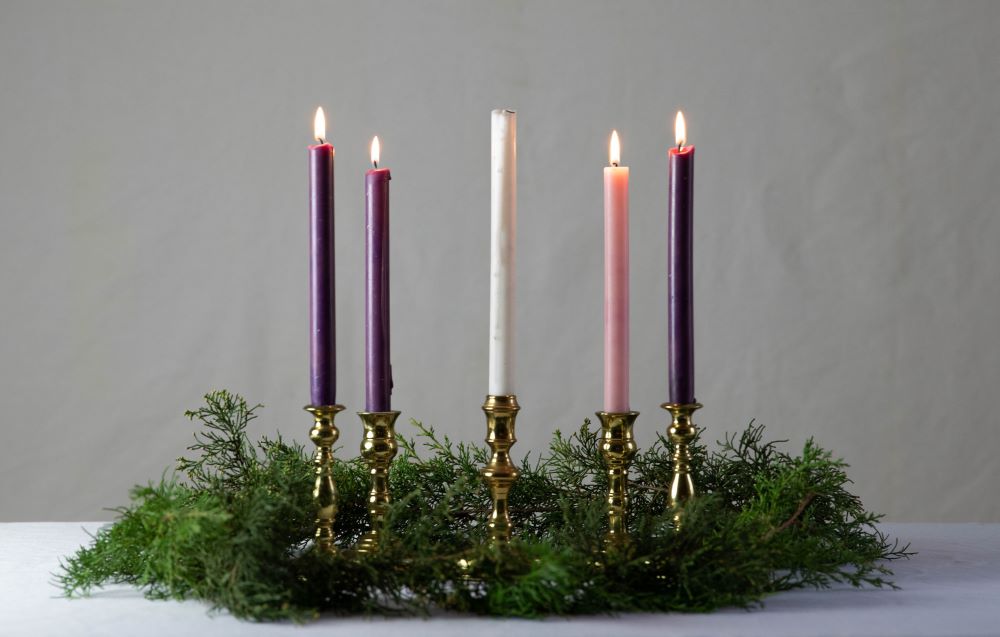
((Unsplash/KaLisa Veer)
Welcome to our seventh year of The Life, featuring a panel of 20 sisters who will reflect on issues that impact the lives of Catholic women religious around the globe.
We chose a panel from more than 65 applicants from around the world who reflect a diversity of ages, nationalities, religious congregations, ministries and charisms. They'll take turns writing responses to a prompt or a question about spirituality, religious life and other topics.
Our panelists this year have ties to or have worked in: Burkina Faso, Cameroon, Guatemala, India, Ireland, Kenya, Lesotho, Nigeria, Peru, Rome, Spain, South Sudan, the United States, Vietnam and Zambia.
They include sisters in education, missionary work, development, congregational finances, hospice, retreat work, research, spiritual direction, pastoral work, formation, graphic art and marketing, psychotherapy; sisters who are attorneys, authors, nurses, administrators, congregational leaders and university students. Meet all of our new panelists here.
Read their responses to our request to write a reflection on Advent.
______
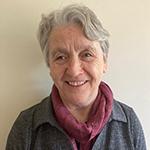
Ann Grey is from Scotland and has served as a lay missionary in Sierra Leone and as a Missionary Sister of St. Columban in Hong Kong, where she studied Cantonese and co-established Action for REACH OUT, an organization providing services to female sex workers on the streets and nightclubs of Hong Kong. After a short time in China studying Mandarin, she was elected congregational leader. Since completing her term in leadership, she has been in Ireland working on the development of congregational spirituality.
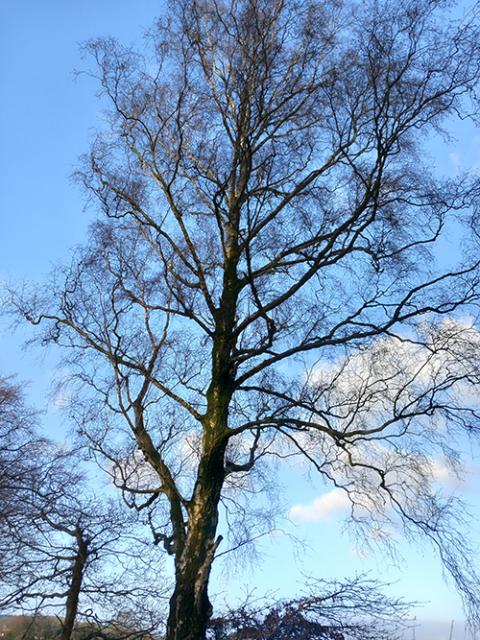
The beech, known as the queen of the forest in Ireland, stands as a symbol of quiet strength amid the season’s leafless tranquility. (Ann Grey)
Here in Ireland, we celebrate the season of Advent in wintertime — a cold, quiet and often silent time when many species of birds have left our shores for warmer climes. It is a time when trees have shed their leaves, and very few flowers are in bloom.
For me, this is a time of expectant and patient waiting because I know that in spring the birds will return, albeit in fewer numbers these days. The trees and flowers will blossom forth again just as I know that the darkness of the longest night of the winter solstice will slowly decrease each day by the length of a cock's step, as the old Irish saying tells us: "Ta Coisceim coiligh ar an la" ("There is a rooster parade on the day"). It has been said that Advent "must also be marked by a spirit that searches again for the footprints of Jesus in human lives and in world history." This year, as I look forward to Advent, especially to this quiet time, I am also conscious of the state of our world today and how challenging it can be to recognize the footprints of Jesus.
How easy it is for me to believe as I pray with Isaiah, "Our Redeemer is your ancient name." But in the many war-torn countries of our world today, how challenging must it be for millions of people throughout the world to believe this as they experience the terror of their nights being spent in an air raid shelter, surrounded by the sounds of explosion and destruction, not to mention loss of life. No experience of silence here.
Where is the hope of the Advent Spirit for people who have lost loved ones, their homes and all their possessions after the droughts, floods and earthquakes, which are the result of the extreme weather conditions experienced in this past year throughout our world? As they find themselves surrounded by the manmade deserts, the wildernesses of today, will they be able to make a pathway to find a way to God in the midst of their heartbreak and struggle?
And for these people, this Advent, my heart will cry out with the prophet Isaiah, ‘Do not let your compassion go unmoved for you are our Father.’
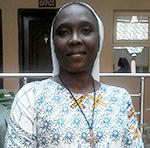
Edith Eneh is a member of the Sisters of Notre Dame de Namur, Province of Nigeria. Since her profession in 2011, she has worked as a bursar in various schools for eight years. Currently, she works in her province's development office.
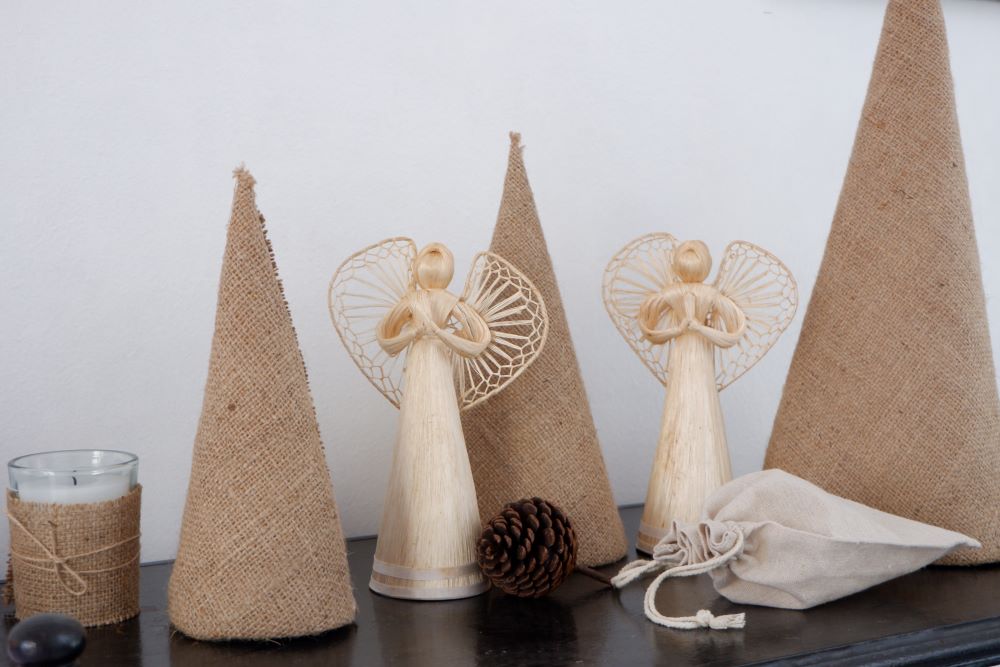
(Unsplash/Victor Guevarra)
Advent is one of the seasons in the church we always look forward to. It is usually a time of joyful waiting for the rebirth of our Lord in our lives — a time of hope and great expectation that precedes Christmas.
Advent brings with it an aura of peace, joy, unity and fraternal love. Despite having celebrated many Advents in Nigeria, the gifts Advent brings still elude my country. Nigeria was once a country blessed with so much peace and unity that one hardly notices the existence of two strong religions — Islam and Christianity — among others.
Presently, the country is plagued with Boko Haram insurgents (Islamic extremist), Fulani herder militia and bandits. All are silently carrying out jihad in various parts of the country, especially where concentrations of Christians live.
For over a decade and half, the Boko Haram crisis, which began in the northeastern part of the country and has now spread to the central region, has targeted mostly Christian, dominated villages, kidnapping and killing people. They have occupied more than 20 villages, and thousands of lives have been lost.
The Fulani herders and bandits have made life intolerable for the people in the southern region of the country. The herders, in search of lush green vegetation for livestock, use the southern farmers' land for grazing, causing untold hardship and scarcity of food crops.
In addition, the bandits also contribute to the oppression of Christians in the country. The incessant kidnapping of Christians and demands for ransom has made traveling a nightmare. The southern region, which used to be a safe haven, has now become a devil's den because of the nefarious activities of the bandits.
Despite the lingering crisis, we have not lost hope in God and hope that one day there will again be peace, unity and love in our country. It is amazing the joy Christians still radiate in the face of all these crises. They have not stopped going to church despite the massacres of Christians, even in worship centers.
Advent, a season of great expectation, renews our hope in the good God who makes all things new. Christians have not lost hope in the living God they serve and strongly believe that one day God will restore the glory of the country when all will once more dwell as one.
Advertisement
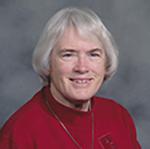
Patricia Wittberg is a Sister of Charity of Cincinnati. Ohio. She holds a doctorate in sociology from the University of Chicago, and she taught the sociology of religion and religious organizations for 30 years at Fordham University and Indiana University (Indianapolis). She currently administers her congregation's Seton Enablement Fund, which gives low-interest loans to nonprofit organizations that help poor and marginalized people. She is also a research associate for the Center for Applied Research in the Apostolate. or CARA, at Georgetown University.
Each year, in our Advent prayer, we give voice to our longing for the coming realm of the messiah when our present world's pains — war, poverty, hunger, climate change, violence, inequalities — will be no more. Even if we say we realize that our longing can never be fulfilled in this life, it still arises, again and again, from a deep and persistent place in our human hearts. In fact, I believe that many of the fissures in today’s society stem from groups of people who mistakenly think that joining this or that movement, following this or that leader, or destroying this or that enemy will bring about the perfect world. And the more the world's ills increase, the more people are tempted to join these groups.
How to break the cycle? One way, obviously, is to work to lessen the ills that feed it. We can feed the hungry, give water to the thirsty, clothe the naked, shelter the homeless, live sustainably, and fight racism, sexism and all the other -isms. But that will never be enough; there will always be more that needs to be done. Sometimes it seems that, as with Alice in Lewis Carrol's Through the Looking Glass, we need to run as hard as we can to stay in the same place. To get anywhere, as the Red Queen said, we would need to run twice as fast.
The second way, paradoxically, may be to embrace our human world as Jesus embraced it — not to stop feeding the hungry or healing the sick, but to realize that it is precisely in this world of the poor, the sick, the hungry, the displaced and homeless where God is to be found. Maybe if we actually managed to create a perfect world — or, in the terms of science fiction, to discover a perfect universe somewhere else in the multiverse — God wouldn't be there. In fact, I sometimes wonder if maybe even Heaven isn't "painless." Maybe, as St. Thérèse of Lisieux said, we are supposed to be spending Heaven "doing good on earth" — still sharing in and helping to ameliorate the pains that bedevil earth's people even after we have left it. For me personally, the thought of an eternity of perfect peacefulness is sometimes a little frightening. I would want to "help God" in some way. I need to pray about this.
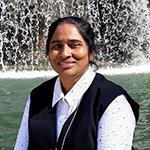
Mary Karuna Matthew is a native of India and is affiliated with the Congregation of the Sisters of Notre Dame of Coesfeld, Germany. Her areas of specialization include education, theology, formation and psychology. With a wealth of experience in education and formation, she currently serves as part of the general administration, where she oversees the congregation's formation program. She lives in Rome.
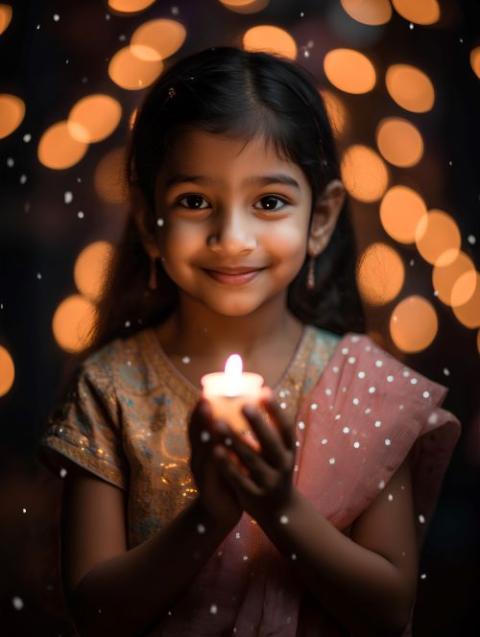
(Unsplash/luzazure)
Humanity is excelling in science, technology and communication. We know that, if correctly employed, they can lead to the betterment of humanity. Unfortunately, they become instruments of war, support the concentration and abuse of power, weaken social and cultural values, and endanger the existence of nature and mankind. The present situation of Ukraine and Russia is one example. The two countries are plunging into an abyss of violence and destruction.
We believe that Advent is a season yearning for God to come and set the world right with perfect justice, truth and peace. It is a season of hope. When we look through the prism of today's world realities, how can we re-emphasize this aspect of yearning for God's coming with truth and peace? What is the significance of hope for today's world, especially for those who suffer unreasonably?
Advent marks the beginning of a new liturgical year, inviting us to prepare ourselves for the celebration of the Lord's coming into the world as the incarnation of God's love. Our experience of this incarnational love of God needs to be channeled to others, too. This preparation is practical in so far as it calls for a worthy preparation to receive the same Lord and redeemer who comes to us in the daily encounters of people and events.
I recall the beautiful poem of the Indian poet Rabindranath Tagore:
Have you not heard his silent steps?
He comes, comes, ever comes.
Every moment and every age, every day and every night he comes, comes, ever comes.
Many a song have I sung in many a mood of mind, but all their notes have always proclaimed, “He comes, comes, ever comes."
Do I listen to the silent steps of Jesus? Christ came once "like a child," but also how he "comes, comes, ever comes" even still today, in the cry of the poor, the exploited and the victims of the war. During the season of Advent, we can make every day an anticipation for yet another, more profound, more transforming revelation of God's profound love for the suffering humanity. Hence, we will be able to say "God still loves the world" even when we try to veil the reality of destruction and despair.
The season of advent reminds us that Christ is our love and hope who comes to save us. May Christ touch our life in a personal way because he comes, comes, ever comes. "The people walking in darkness have seen a great light; on those living in the land of deep darkness a light has dawned" (Isaiah 9:2). As we wait for the coming of Jesus, may the prophesy of Isaiah be a reality for all, a birthing of new life from darkness into light.
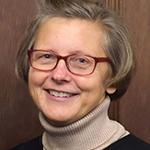
A Benedictine Sister of Chicago since 1988, Susan Quaintance currently serves as her community's subprioress; she also works part time as director of Heart to Heart, a ministry for seniors at a nearby parish. Classrooms are where she most feels most at home, having spent decades teaching in a Benedictine single-gender high school for young women and then directing an educational outreach program for older adults in downtown Chicago. She sits on the board of the United States Secretariate of the Alliance for International Monasticism and on the council of the Monastic Congregation of St. Scholastica.
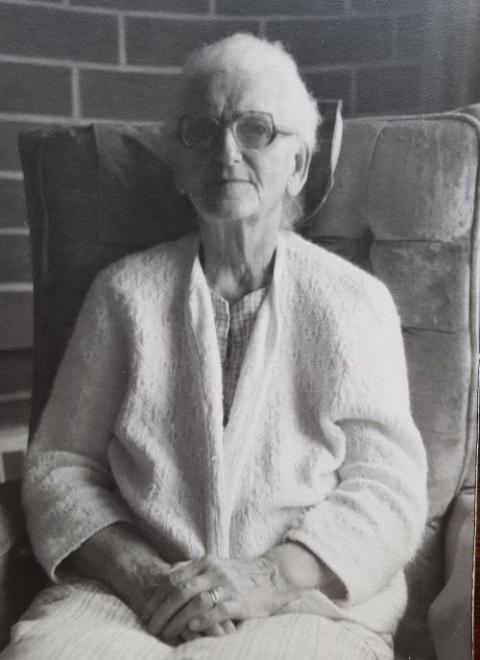
Rose Miller, Benedictine Sr. Susan Quaintance's grandmother, reminds her to embrace the faith of Elizabeth even in the midst of uncertainty. (Courtesy of Susan Quaintance)
I was a high school theology teacher, and annually cherished introducing first-year students to Isaiah, John the Baptist and Mary as prophets of Advent. The profound theology that undergirded those lessons may have been a bit beyond the average 15-year-old's experience and capacity for self-reflection, but speaking of promise, trust and joy to those in the early stages of their faith journeys seemed worth the risk of missing a few nuances.
These days, I look to Elizabeth as my Advent hero. I currently work with older adults in a parish near my monastery and am in community leadership as we face and live into our end. Elizabeth, "barren" and "advanced in years," is now the one who speaks Advent truth to me.
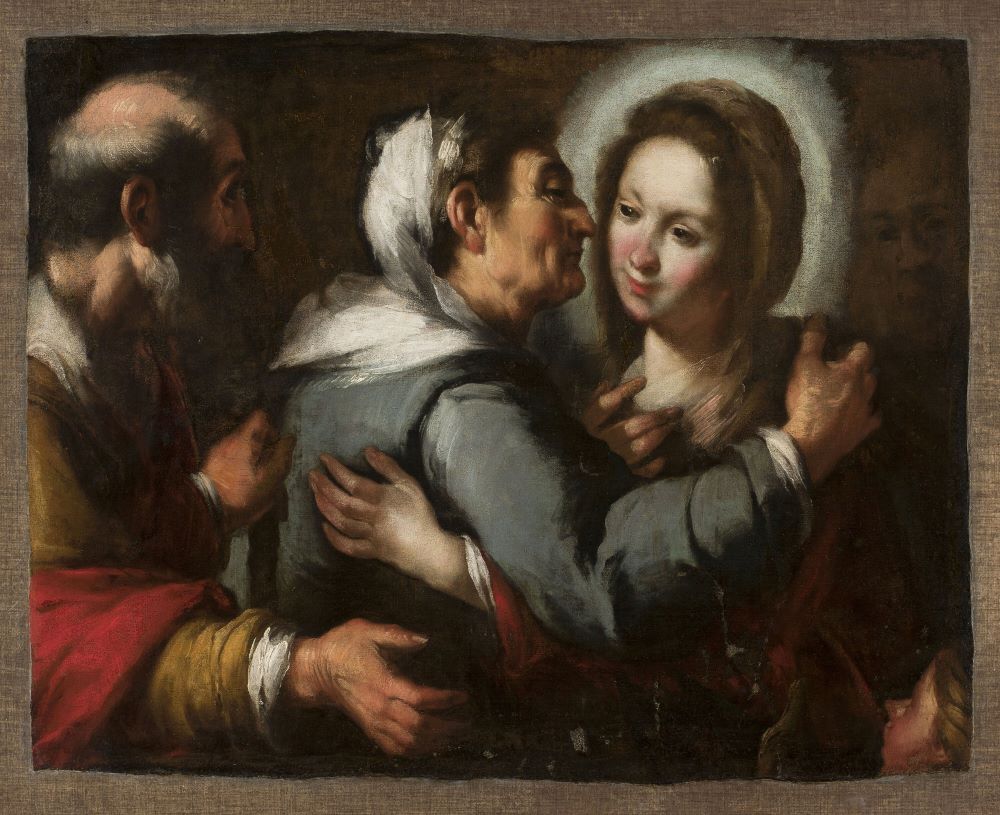
The Visitation, by Bernardo Strozzi (1581-1644) (Artvee)
I have long loved Luke's telling of the visitation for its rare story of two biblical women, old and young, figuring out the mysteries of their lives together. One thing that impresses me is how they listen to their bodies in discerning reality. Elizabeth comes to understand who and how salvation is because "the infant leaped in her womb" (Luke 1:41). Though I have never been pregnant, I have a woman's body and wonder at its ability to teach about rhythm, reliability and resilience if I only attend.
Another way that Elizabeth leads me is her model of relationality. When the challenges of this historical moment — in community, city, country – tempt my introverted heart to withdraw, Elizabeth encourages me to stay in the moment with others. What does she say when Zechariah returns, mute and changed, after his encounter with the angel? In her five months of seclusion, how do they digest their new social reality? During the three months that Mary and Elizabeth are together, what do they talk about as they take up the day's chores? An angel's words, whether heard first or second hand? The confusion of upended expectations? Their conversations remain hidden, but it's clear that Elizabeth didn't try to figure it out alone.
Finally, Elizabeth displays a faith and openness to which I aspire. She blesses Mary "who believed that what was spoken to [her] by the Lord would be fulfilled" (Luke 1:45), but she also believes. Elizabeth gives birth, not to a messiah, but to a prophet and prophecy. She, too, offers a fiat to God's plan. I don't fully comprehend what God is doing through the difficult choices my sisters and I face, but if we are attentive to the movements of grace, we, like Elizabeth, may be a source of life and a channel through which God's message of love is proclaimed.





